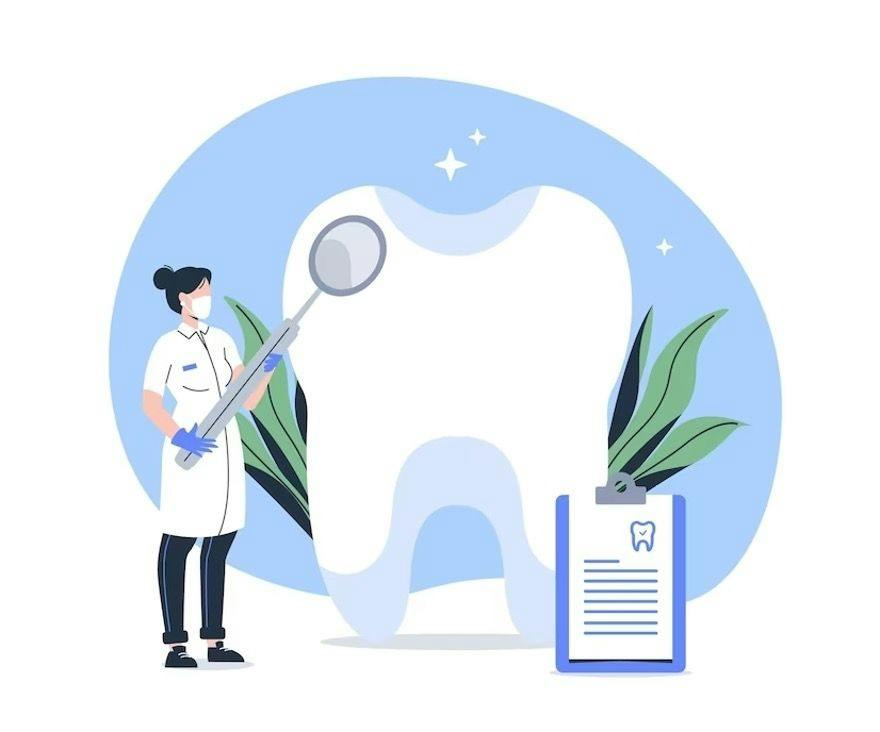There is a vast range of treatments in dental and oral care. From fixing teeth shapes, and deep cleansing to filling the cavities, each of them offers a different level of pain and purpose. One of the most painful ones, however, is extractions. Oftentimes, teeth need to be extracted for various reasons, and if it’s a wisdom tooth, that it’s a whole different story.
Most of us grow wisdom teeth after we hit our teenage. There are total three sets of molars, wisdom teeth are the third of them. When the growth of wisdom teeth starts, some people don’t feel any pain at all, while some people do go through plenty of discomforts.
There are a couple of conditions, in which you should choose to remove the wisdom tooth. One is the impacted wisdom tooth; when the wisdom tooth grows in such a direction that it gets blocked by the molar beside it. In this case, it makes the patient feel pressure in his/her jaws and teeth along with pain.
The other condition is when the inflamed skin around the third molar gets inflamed and it gets bitten by the upper set of molars, making it painful. Another condition is when the wisdom tooth and/or gums get infected.
In all the conditions mentioned above, you need to get the wisdom tooth removed by a dentist. Usually, the process involves anaesthesia followed by a careful extraction of the problem-creating wisdom tooth. While the process does sound a little scary, an efficient dentist will make it as comfortable for you as possible.
Additionally, there are a few things to keep in mind in terms of aftercare. After the extraction of any tooth, aftercare is absolutely crucial for recovery. Apart from strictly following your dentist’s instructions, you can stick to the tips given below for faster recovery after wisdom tooth extraction (removal).
Plan ahead
If you’re advised for the wisdom tooth removal, book the appointment for the procedure at least a couple of weeks ago. If possible, plan to take sick leaves after your appointment to avoid discomfort or possible pain at work or school. Prepare yourself for the procedure before the day. If you’re taking any medication that can affect the extraction process, bleeding or pain inform the doctor in advance.
Keep surgical area protected
After the removal is done, keep the area (mouth-cheeks-ears) protected. Make sure nothing can hit it accidentally. Also, refrain from making any sudden moves. For a couple of days, control yourself from touching the affected area in your mouth with your tongue.
Diet
This is one of the most important parts. You’re not supposed to chew vigorously after the extraction for a minimum of 4 days and maximum a week. Choose to consume soft foods to eat after tooth extraction. Such a diet includes mashed potatoes (without seasoning) and yogurt, a bowl of soup at room temperature. Overcooked rice can also work.
Control bleeding with tea bags and gauze
Just when you finish the procedure, the bleeding may continue for a little while. You are supposed to put gauze on the wound to control the bleeding. Even your saliva can disturb recovery at this stage, so be sure to keep the gauze or a tea-bag and be careful as its a bit critical period for you.
Use ice packs
Over the next couple of days, you may feel a sharp pain near the wisdom tooth. For that, the painkillers given by your dentist are your solution; also, using ice packs when it hurts will surely help and soothe the pain.
Rest adequately
Last and not at all the least, have plenty of sleep. Sleep has the power to heal the body. The wound after the tooth removal will require a bit of time and with enough rest you can accomplish the recovery.
Teeth extractions are way safer than in the old times. As far as you go to a reliable dentist and choose to carry out aftercare nicely, you’ll feel healthy and pain-free within a couple of weeks.
Author Bio:
Dr. Anu Isaac, DMD, runs a successful dental clinic in Salem, MA. Dr. Isaac strives for quality on a daily basis and this commitment to quality is reflected in her constant pursuit of advanced training. Her firm belief that even experts need to stay updated about what’s new in the dental field, enables her to provide every patient with optimal oral care. As the founder of Coral Dental Care, she is dedicated to creating healthy, beautiful smiles for her patients and also to educating dental and non-dental communities with her engaging articles on all things related to oral health, recent dental innovations, and latest treatment modalities.


Comments are closed.